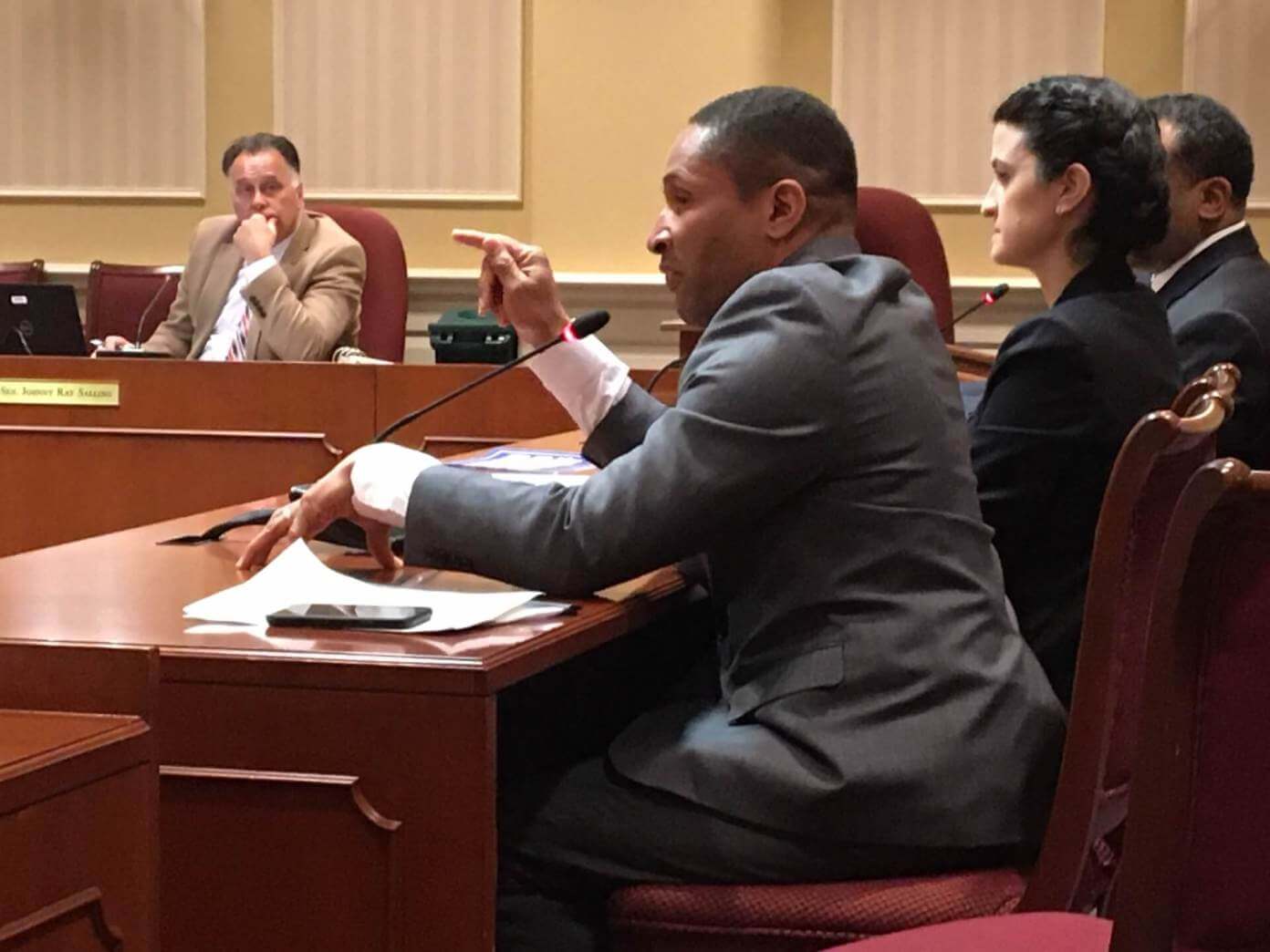Bill Would Shift Party Control of Local Election Boards

Because Gov. Lawrence J. Hogan Jr. is a Republican, all 24 of Maryland’s local boards of elections are dominated by a Republican majority regardless of the makeup of their county.
And, if a Democrat is elected governor in 2022, Democrats will hold the majority on all of those election boards – even if the majority of voters in a county are Republicans. Current state law dictates that the “majority party” on the state’s local boards of elections is the political party of the governor.
A proposal by Sen. Arthur Ellis (D-Charles) would change how the political makeup of local election boards is determined. Under Ellis’ proposal, the makeup of election boards would be based on the party affiliation of the majority of voters in each jurisdiction, rather than the governor’s political party.
At a Thursday Senate Education, Health, and Environmental Affairs Committee meeting, Ellis argued that his proposal is needed to make local boards of elections reflect the counties they represent.
In Maryland, all local election boards have five regular members. Montgomery and Prince George’s counties have alternates who only vote if a member is absent.
In 23 jurisdictions, three members must come from the majority party (meaning, the governor’s party) and two from the minority party. But in Prince George’s County, four members and two substitutes must come from the majority party (governor’s party) and one member and one substitute from the minority party.
“In order for the social contract to be upheld, there needs to be a democracy that respects and abides by the opinions of the majority of people in that area,” Ellis said, arguing that election boards should reflect voters’ preferences rather than the governor’s.
“We just don’t want any kind of hegemony, one group having dominance over the other,” he said.
The proposal received bipartisan interest, with Senate Minority Leader Bryan W. Simonaire (R-Anne Arundel) calling it a “fairer way” to select the leadership of local boards of elections.

Sen. Bryan W. Simonaire (R-Anne Arundel)
Simonaire also floated other approaches to determining the makeup of local boards, like basing the majority party on the results of recent county-wide elections.
Committee Chair Paul G. Pinsky (D-Prince George’s) and Sen. Mary Beth Carozza (R-Lower Shore) worried that the proposal might lead to long-term local domination by a single party. He urged Ellis to consider amending the proposal doesn’t lead to the exclusion of political minorities.
“I want to be assured that no one abuses it and comes up with policies that disproportionately affect the other party, whatever county we’re in,” Pinsky said.
Ellis signaled that he’s willing to amend the bill based on what he and other legislators decide is the best way to make local boards of elections more equitable. A similar proposal to base elections board membership on county political parties is also included in Sen. Cheryl C. Kagan’s (D-Montgomery) lengthy election reform bill.
The committee also heard an amended proposal to require Maryland municipalities to hold special elections for legislative vacancies. Senate Bill 89, as originally introduced by Sen. Douglas J.J. Peters (D-Prince George’s) would’ve required “each municipality to establish procedures that require a vacancy in an elected municipal office to be filled by holding a regular or special election within 90 days after the date the vacancy occurs,” according to a Department of Legislative Services analysis of the bill.
But after consulting with the Maryland Municipal League, Peters changed the proposal to be less burdensome on local governments. Peters said the amended bill requires special elections when there are two or more vacancies for elected offices in a municipality at the same time. He said changes to the bill might call for state funding.
Angelica Bailey, director of government relations for the Maryland Municipal League, cautioned against a one-size-fits-all mandate on municipalities, since each municipal government has its own rules and challenges.
“That level of diversity necessitates flexibility,” Bailey said.
Maryland’s counties already conduct special elections for vacancies in elected offices, and Bailey said some of the state’s municipalities already have procedures in place for conducting special elections.
Speaking against the bill, Steve Gamatoria, chief of staff for Havre de Grace Mayor William Martin, said the proposal infringes on local freedom and imposes an “unfunded mandate” on municipalities, but added that he was encouraged by the amendments.
“How such vacancies in the office are filled should be determined by the municipal legislative bodies.”




 Creative Commons Attribution
Creative Commons Attribution